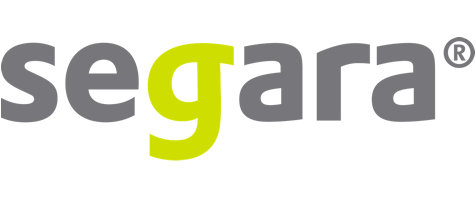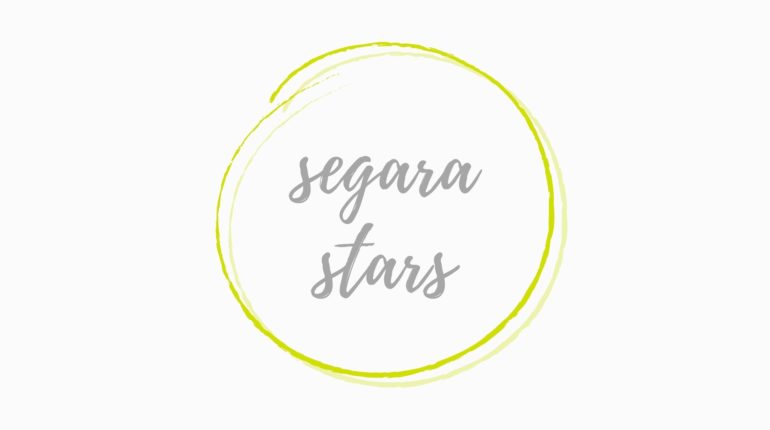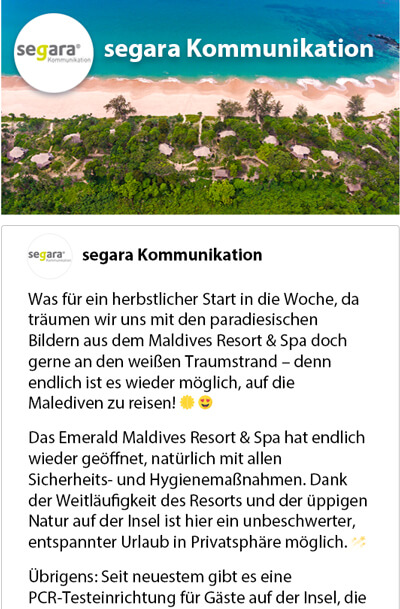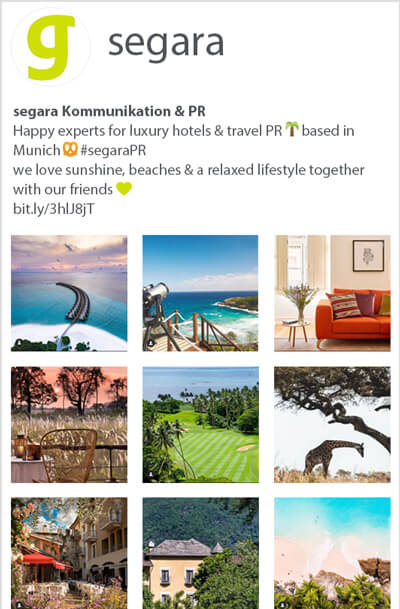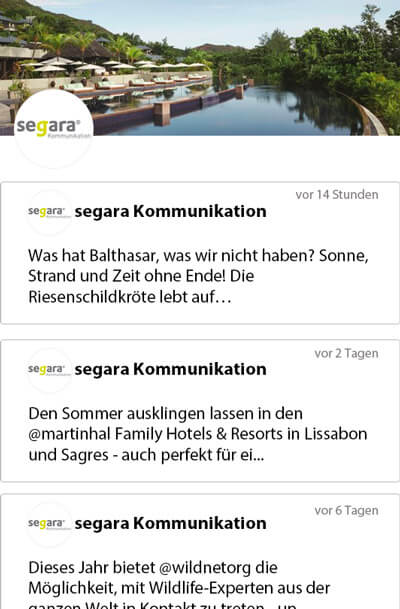2020 was a year with many challenges but also opportunities. From today onwards, we will introduce you to our “segara stars” – people, partners and friends who have proven that even during such a difficult year you can still be creative and successful.
Our first segara star is Wotan Paulus, the German owner of Neptune Hotels on the Greek island of Kos. Why was the season so successful in the end? The network and team spirit make the difference!

segara stars wotan paulus owner neptune hotels kos
segara: Summer 2020 – how did you deal with the uncertainty regarding your employees?
Wotan Paulus, owner Neptune Hotels: In March, as soon as we were certain that we would not be able to open the hotel as scheduled, we discussed how we could make use of our permanent staff and then hire our seasonal staff as quickly as possible. The
independent development of our hygiene concept and the decision to open the hotel on the first possible date was very personnel-intensive and this helped us to keep our staff employed.
Do you feel supported by the travel agents? Neptune Hotels work closely with both small and large tour operators. Our industry has fallen into a completely unpredictable crisis and we have realized that we achieve significantly
better results with the operators we work closely with and built up a good relationship throughout the years contrary to those who think about themselves first. Unfortunately, many guests have lost a bit of confidence in the tour operators due to the uncertainties and the countless cancellations – we notice this in a significant increase in direct bookings.
How did guests react to the safety measures? Positive throughout! Neptune Hotels have independently developed a 15-page hygiene concept, taking into account more than the mandatory governmental requirements.
Following this hygiene concept is key for the entire team and we have conducted several training sessions so that guests can enjoy a carefree and barely restricted holiday despite Covid19. As a positive feedback we hear that our guests not only enjoyed their summer holidays but have also taken a little break from this omnipresent pandemic – a high praise for our team.
Neptune used to be a hotel that was marketed in the traditional way through the tour operator channels. How has this changed? I don’t want to neglect the long-standing partnership with traditional agents as these will always remain one of the main sales channels. However, there are signs of a signi-
ficant increase in online bookings, either
directly or via booking platforms. In particular repeaters, which are over 50% of our guests, book direct. The proximity to the airport (15 minutes by car) often calls the package holiday into question.
How does the guest structure change when the number of direct bookings goes up? This year is not representative in my opinion. The guests were much younger this year which I guess was related to Covid19. In general, however, it is the young families with children and singles who book directly. And as mentioned above, also our repeater guests.
What is your most important tool to increase direct bookings?
We have intensively worked on the infrastructure, from continuous improvement of the online booking system to training the staff. We must offer a competitive product, especially during Covid19 it is important to give guests security and flexibility as some already had negative experiences elsewhere. We have therefore been very flexible in terms of cancellations and refunds of deposits as it is extremely important for us to maintain the trust of our guests.
An important instrument for more direct bookings is also the media coverage on Neptune Hotels in Germany, Austria and Switzerland, which has significantly increased in recent years.
Neptune is known for its renovation work and investments that take place over the winter period. How do you proceed following this season?
Last winter, Neptune Hotels renovated almost
100 rooms and implemented a new restaurant concept. This winter unfortunately we have to slow down a bit. We are focusing on our staff and the maintenance of our 150,000 square meter facility. Of course, we are already working on one or two smaller projects to offer our repeating guests something new in the upcoming year as well.
The outlook 2021 is difficult – what forecast do you dare to make?
If I could give a forecast for Greece or Kos, I would be very grateful because that would make my work much easier. I expect a noticeable improvement in 2021 compared to this year, but I do not expect a boom as in previous years – we will probably also see a further tendency towards short-term bookings. The only thing I can say for sure is that my team and I will be ready from the first day of the 2021 season and will face future challenges with our usual professionalism.
Only recently Greece has emerged from a major economic crisis. What impact has this new crisis on the population there? The fact that many hotels weren’t open means that there was no summer
income for employees and suppliers.
As always, it unfortunately mainly affects the countless employees who, unlike us in Germany, do not live in a comparably good welfare state.
For our part, we have been working on a sustainable concept for almost 30 years, be it for employees, the environment, or the island of Kos. Thinking about the consequences if the majority of hotels here on Kos would remain closed, was our main driver this season to open the hotel on the first day possible, on 1st July 2020.
Often there is an opportunity in a crisis – what opportunities do you see?
There are always opportunities, first and foremost the growing awareness that travelling should not be considered as self-evident. We notice that guests enjoy their holidays more intense. The trend in recent years has been more and more towards many short trips, holidays have become something normal. Perhaps we start to experience our holidays more consciously again. Furthermore, the decrease in the number of tourists often benefits the quality. Many places are no longer crowded. Even if it is difficult for the tourism industry at the moment, I hope that we can use this crisis for something better, especially in terms of staffing and sustainability.
